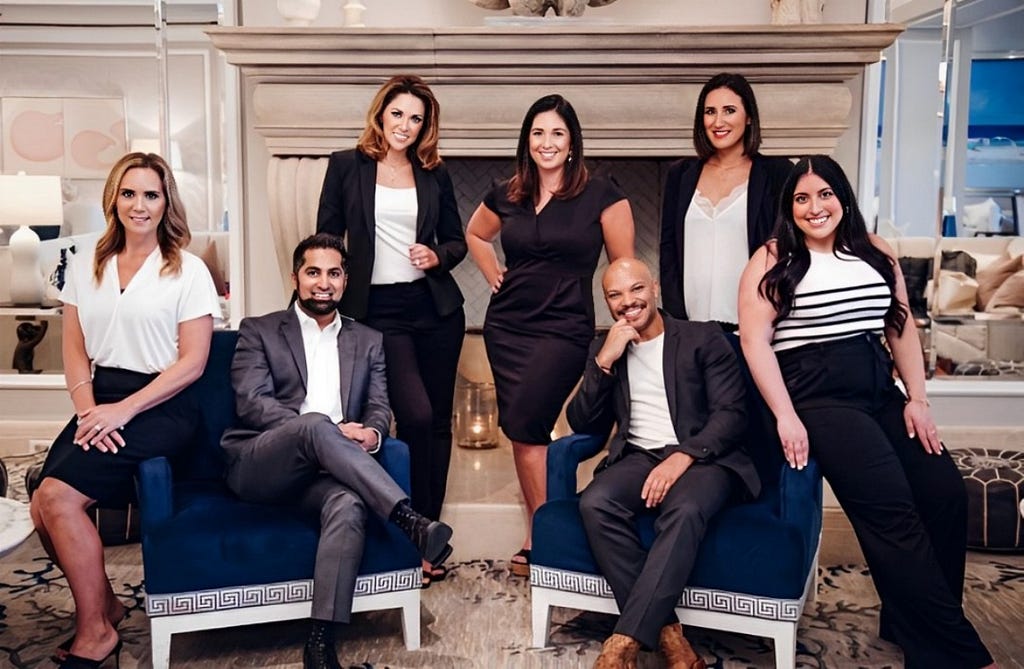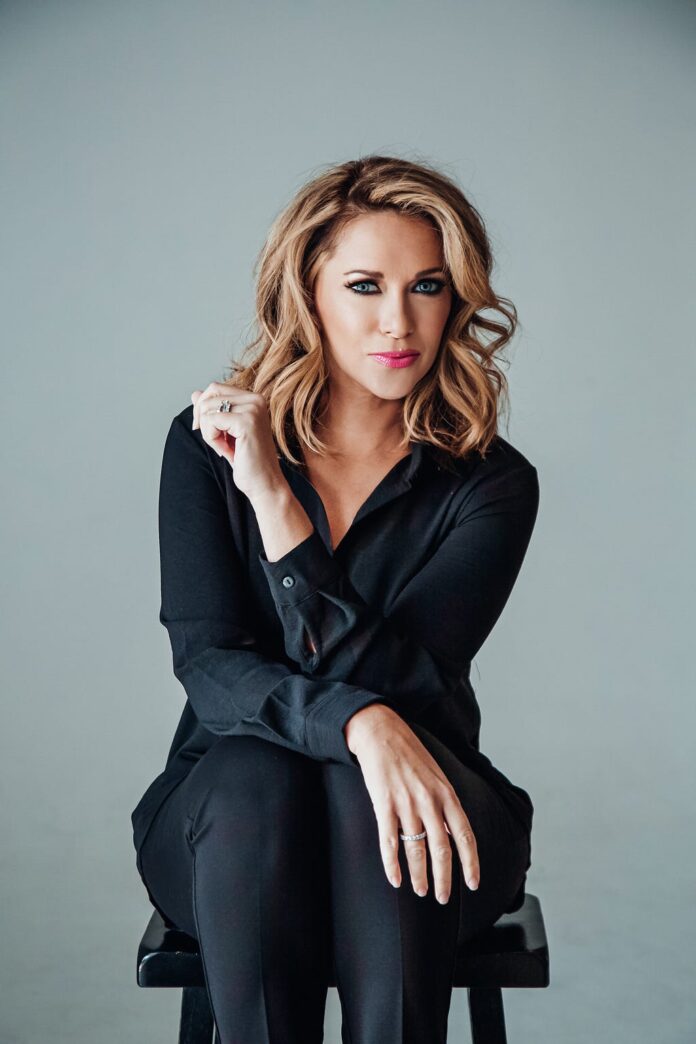An Interview With Dina Aletras
Ensure Consistency: Maintain strong consistency in your execution. Many struggle with this, which hinders their ability to become a leader as they constantly start over and hop from one thing to another.
As part of our series about how to become known as a thought leader in your industry, I had the pleasure of interviewing Kelly Roach.
Kelly Roach is one of the only female founders in the online space to build her company from 0 to 8 figures with 0 debt, investors, or outside funding. Kelly is a former NFL cheerleader and Fortune 500 executive turned 8-figure+ entrepreneur empowering thousands around the globe to achieve financial and lifestyle freedom through entrepreneurship.
Kelly is a multi-international best-selling author, Top 20 podcast host, and philanthropist who has been featured in major media such as ABC, NBC, Fox, and Forbes — as well as the recipient of prestigious awards such as #287 on the Inc. 5000 list, The Stevie® Awards Woman of the Year, TITAN CEO of the Year, and Inc.’s Best in Business.
Thank you for taking the time to speak with us! Our readers are eager to learn more about you. Could you provide some background information about yourself?
I worked in a Fortune 500 company, where I was promoted seven times in eight years, became the youngest senior vice president, and managed a team of 100 people across 17 locations. I loved the work — I enjoyed teaching, coaching, and training, as well as the sales, growth, and business management aspects. However, the work didn’t fully satisfy my desire to make a meaningful difference in the world. I wanted more direct, hands-on work with people. That’s why I decided to take my business knowledge and expertise and use it to teach others. I aimed to combine billion-dollar corporate strategies with internet marketing tactics to make a positive impact and share my story of overcoming hard times on my journey.
What establishes you as an authority on thought leadership? Could you briefly share your expertise with our readers?
The first thing that established me as a thought leader in my industry was introducing a completely new paradigm in the group coaching space. Traditionally, the go-to model was to throw everyone into a Facebook group, where hundreds or even thousands of people were left with minimal personal interaction — just a group call with little one-on-one support. I was passionate about providing a high-touch environment with individual support, while still benefiting from the global impact of a large organization.
So, I introduced the first accountability-led coaching model, which challenged the status quo of high-ticket coaching programs that charged tens of thousands of dollars but lacked customization, personalization, and individual accountability. By identifying these gaps and creating a new model, I turned the industry on its head. To make a significant impact, you have to be willing to break the rules, develop your own model, and fill the gaps in your industry.
Can you recall a funny mistake you made when you were first starting out? What lesson did you learn from it?
One of the mistakes I made when starting was investing heavily in a business coaching program that used a webinar model. After running the webinar and inviting everyone to a follow-up call, I took multiple days off work, expecting to fill my calendar with calls. However, I ended up with zero calls and zero sales, which was both devastating and a great learning experience. I realized that, despite having great content, a compelling offer, and being a strong presenter, I faced two key issues:
1. I hadn’t built a strong enough relationship with my audience yet.
2. An hour wasn’t sufficient to establish that relationship and drive conversions.
I learned that I needed more time for in-depth relationship building and rapport with my audience to achieve better results.
What are the most significant disruptions you foresee in your industry over the next five years, and how can businesses adapt to these changes?
I believe the most significant disruption in the online space will be the increasing sophistication of customers. They are now smarter, more discerning, and more cautious. As a result, companies will need to improve their efforts to deliver genuine value and results to their customers, ensuring they fulfill their promises. I see this as a positive development, as it pushes businesses to be more accountable and customer-focused.
Can you explain the benefits of becoming a thought leader? Why is it valuable to invest time and resources into this?
Until now, there hasn’t been much accountability, but as customers become more savvy and sophisticated, they will demand it. Businesses will need to meet these expectations to stay relevant. The benefit of becoming a thought leader is significant: you stand out, gain authority and respect, build a strong brand, and receive referrals. Investing time and resources into thought leadership is crucial for creating long-term success. If you’re merely echoing what’s already out there, you’re not adding much value. People are seeking unique perspectives, innovative solutions, and different approaches that address gaps. That’s the essence of thought leadership.
Can you share an example of a significant challenge you faced in your career and how you leveraged innovative thinking to overcome it?
When the 2008–2009 crash hit, I had to lead my team in developing a new go-to-market strategy and launching a new line of business. We needed to rapidly acquire new skills and build a new model for success because we lost nearly 50% of our business in just a few weeks. In hindsight, it was one of the best things that ever happened to me. It taught me invaluable lessons about innovation, the speed of change, and how to lead effectively through such challenges. It was a significant success and a crucial learning experience.

Now that we have covered that, we’d love to hear your advice on becoming a thought leader. Can you share five strategies that someone should follow to gain recognition as a thought leader in their industry? Please include examples or stories from your own experience for each strategy.
1. Have Your Own Opinion: Develop and express unique viewpoints to stand out.
2. Challenge Paradigms: Question and challenge existing norms in your industry to drive change.
3. Create Innovative Products: Develop products that address meaningful gaps in the market.
4. Focus on Disruptive Content: Create content that is innovative and centered around customer needs.
5. Ensure Consistency: Maintain strong consistency in your execution. Many struggle with this, which hinders their ability to become a leader as they constantly start over and hop from one thing to another.
How do you foster a culture of innovation within your organization, and what practices have you found most effective in encouraging creative thinking among your team?
Fostering a culture of innovation involves giving your team both the autonomy and support to experiment and approach challenges entrepreneurially. It’s important to recognize that while many initiatives may not succeed, they can still lead to the right solutions.
How do you stay informed about the latest trends and developments in your field, and how do you incorporate this knowledge into your strategic planning?
I avoid studying trends too closely. Instead, I stay closely connected to our customers and the market. I don’t focus on following what my peers or competitors are doing; I aim to lead rather than follow. By staying in touch with customers and understanding their needs and feelings, we can continuously innovate our products and deliver superior solutions.
Some people feel that the term “thought leader” is overused and has lost its impact. What are your thoughts on this?
Thought leadership definitely lost its power back a couple of years ago, but as content creation has become so mainstream and so oversaturated, I think we’re back at a place where people are really searching for thought leaders. And I think it’s absolutely going to make a resurgence for sure.
How do you balance short-term business goals with long-term strategic vision, especially in a rapidly changing market?
I think that every week when you’re communicating with your team, there has to be a balance of both. I think that you absolutely have to be vision-casting and tying everybody back to the big-picture anchors of the brand. Also reinforcing what the immediate expectations are for the future.
Can you share your favorite “Life Lesson Quote”? How has it been relevant in your life?
Be the best that you can be in everything that you do.
Every day is a blessing and it’s an opportunity to begin again and to be a better version of yourself.
Many influential figures in business and entertainment follow this column. Is there someone you’d love to have lunch or breakfast with? They might notice if we tag them.
How can our readers further follow your work online?
Website: https://kellyroachinternational.com/
Instagram: https://www.instagram.com/kellyroachofficial/?hl=en
LinkedIn: https://www.linkedin.com/in/kellyroachint/
Facebook: https://www.facebook.com/kelly.roach.520
Youtube: https://www.youtube.com/c/kellyroach
Twitter: https://x.com/kellyroachlive?s=20
Podcast: https://podcasts.apple.com/us/podcast/the-kelly-roach-show/id1052353755
Thank you so much for your insights. This was very insightful and meaningful.
About the Interviewer: Dina Aletras boasts over 20 years of expertise in the corporate media industry. She possesses an in-depth understanding of growth, strategy, and leadership, having held significant roles at some of the UK’s largest media organizations. At Reach PLC, the UK’s largest tabloid publisher, she served in various director capacities. Additionally, she held leadership roles at The Independent Magazine Group and DMGT. Her extensive knowledge spans editorial, digital, revenue, sales, and advertising.
Upon relocating to Switzerland, Dina took on the responsibility of managing and promoting the international section of Corriere del Ticino — CdT.ch pioneering the English page “onthespot.” She also was the Co-Editor of Southern Switzerland’s first official Italian and English bilingual magazine.
Kelly Roach: 5 Things You Should Do To Become a Thought Leader In Your Industry was originally published in Authority Magazine on Medium, where people are continuing the conversation by highlighting and responding to this story.


